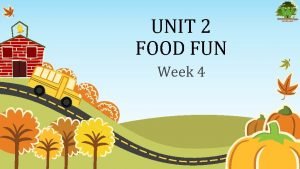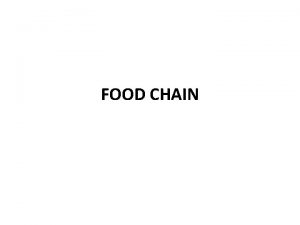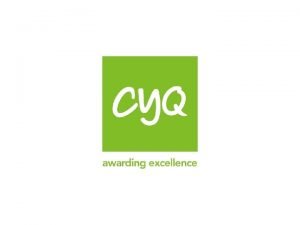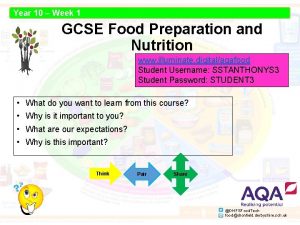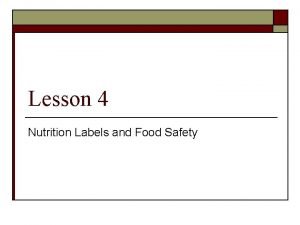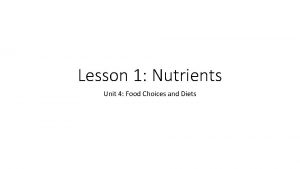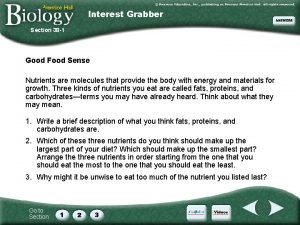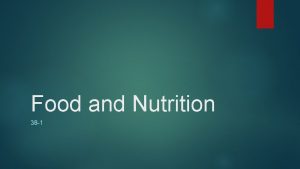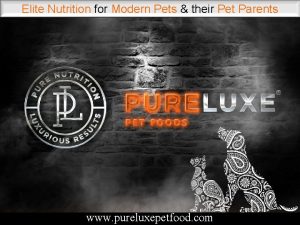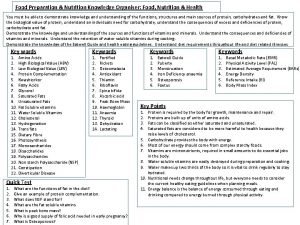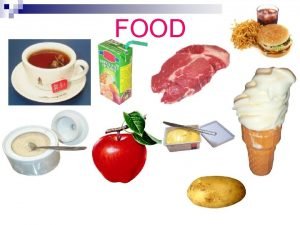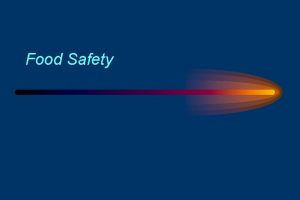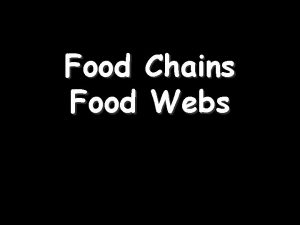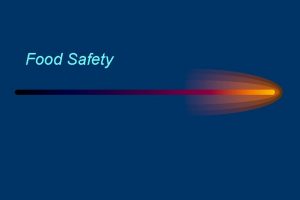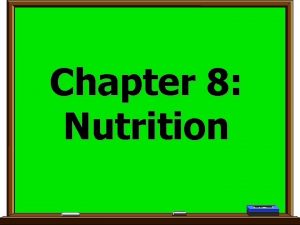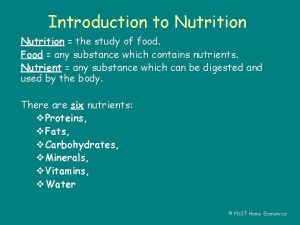Nutrition What is Nutrition The study of food









- Slides: 9

Nutrition

What is Nutrition? The study of food & the way in which the body uses it n 6 classes of Essential Nutrients: n Carbohydrates n Fats n Proteins n Vitamins n Minerals n Water n n Carbs, fats, proteins provides energy => calories

What is a Nutrient? n A chemical substance in food that helps maintain the body. n Some provide energy. n All help build cells & tissues, regulate bodily processes such as breathing. n No single food supplies all the nutrients the body needs to function.

Carbohydrates main source of food energy n 2 types n n Simple n Complex

Fats most concentrated form of food energy n 3 types n n Saturated fats n Leads to obesity, increased cholesterol levels & higher risk of heart attacks n Unsaturated fats (lower risk of heart disease) n Monounsaturated fats n Omega-3 n Cholesterol n Low-density lipoproteins (LDL) – brings it to cells = plaque, “bad cholesterol” n High-density lipoproteins (HDL) – carries it back to liver, “good cholesterol”

Proteins Needed to build & repair body tissues (muscles, skin, hair, nails) n Made up of amino acids, 20 total n 9 essential amino acids (comes from food) n 11 nonessential amino acids (body makes) n n 2 types of proteins complete: contain all 9 AA (animal) n incomplete: contains only some essential AA (plants) n

Vitamins Needed to maintain health, regulate certain chemical reactions & allow growth n no energy n 2 types n n Fat-soluble n A, D, E, K (dissolves & stored in fat) n Water-soluble n B group, biotin & vitamin C

Minerals n n Chemical elements that are needed for certain process Some Types: n Sodium No more than 2, 400 milligrams (1 ¼ tsp) n acts as electrolytes, helps control fluid levels in body, muscle movements, nerve singles, transportation of nutrients n n Calcium 1, 300 milligrams (1 cup milk = 300 milligrams) n for normal growth of bone & teeth n n Iron Girls = 18 mlg, boys = 12 mlg n helps create red blood cells n Lacking = anemia (not enough red blood cells to carry oxygen around body) n

Water ~60% of your body is water n Need at least 8 glasses a day n functions: chemical reactions; maintains acidity of body; helps supply energy, transport gas, nutrients & waste, control body temp n Dehydration: Lose more than taken in n How do you know if your drinking enough? n n Urine should be clear & odorless
